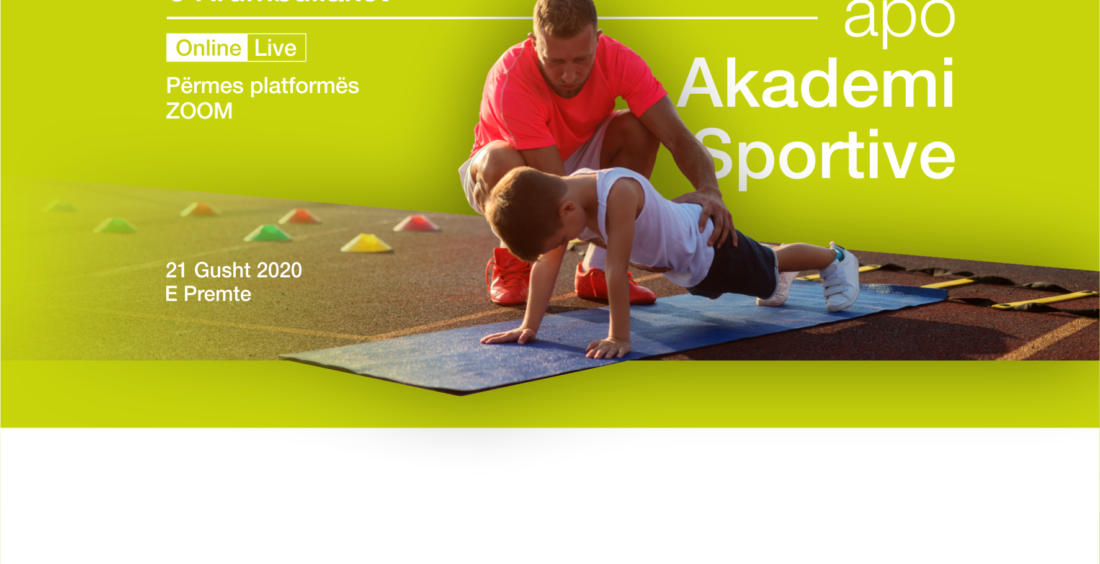Tryeza E Rrumbullakët – Shkolla Të Sportit Apo Akademi Sportive (ENG: Round Table – Sports Schools Or Sports Academies)
In this insightful roundtable discussion, esteemed experts in the field have delved into the intricacies of harnessing the potential of both present and future athletes through the establishment of robust institutional frameworks. By channeling talent effectively, these institutions can serve as engines of growth, not only enriching the sporting landscape but also bolstering Kosovo’s reputation on the global stage.
Drawing upon a wealth of experience and expertise, the roundtable convened professionals who lent invaluable insights into the transformative steps necessary to propel Kosovo’s sports sector onto the international arena. From restructuring existing sports schools to pioneering the establishment of high-performance academies, participants explored multifaceted strategies aimed at nurturing talent and fostering excellence.
Key challenges were systematically addressed, each representing a crucial pillar in the overarching goal of elevating Kosovo’s sporting prowess. Among these challenges, the imperative of restructuring existing sports schools emerged as a cornerstone, laying the groundwork for a more streamlined and efficient talent development pipeline. Moreover, participants underscored the pressing need for the establishment of academies geared towards high sports performance, encompassing comprehensive education, top-tier coaching, and state-of-the-art facilities.
Addressing the deficiencies in sports infrastructure, particularly the need for compliant fields, emerged as another focal point of discussion. By aligning with international regulations and drawing inspiration from successful models worldwide, Kosovo can ensure that its sporting venues meet the highest standards, thus enhancing the competitiveness of its athletes on the global stage.
Furthermore, the roundtable emphasized the critical importance of recruiting and retaining qualified personnel within sports schools and academies. Through ongoing professional development initiatives and strategic partnerships with esteemed institutions such as UEFA, Kosovo can foster a culture of excellence and innovation within its sporting ecosystem, ensuring that its athletes receive world-class training and support.
One of the central themes explored during the Round Table was the distinction between Sports Schools and Sports Academies, and their respective roles in nurturing athletic talent and fostering holistic development. Sports Schools, traditionally associated with formal education systems, offer a balanced curriculum that integrates academic studies with sports training. Advocates argue that this model provides students with the opportunity to excel both academically and athletically, preparing them for a well-rounded future. Conversely, Sports Academies, often operating independently or in partnership with professional sports organizations, prioritize intensive training and specialized coaching, aiming to groom elite athletes for competitive success. Proponents of this model emphasize the importance of focused training and personalized attention in maximizing athletic potential. By examining the strengths and limitations of each approach, the Round Table provided valuable insights into the evolving landscape of sports education and talent development.
The Round Table facilitated an open dialogue among stakeholders, including educators, coaches, athletes, and policymakers, to identify key challenges and opportunities within the realm of sports education. Participants engaged in lively debates and constructive exchanges, delving into topics such as funding mechanisms, infrastructure development, talent identification, and athlete welfare. By fostering collaboration and knowledge-sharing, the event served as a catalyst for innovation and collective action, paving the way for collaborative solutions to complex issues facing the sports industry. Moreover, the Round Table underscored the importance of adopting a holistic approach to athlete development, one that prioritizes not only technical proficiency but also mental resilience, emotional intelligence, and ethical conduct. By nurturing well-rounded individuals capable of thriving both on and off the field, sports institutions can empower the next generation of athletes to achieve their full potential and make meaningful contributions to society.


